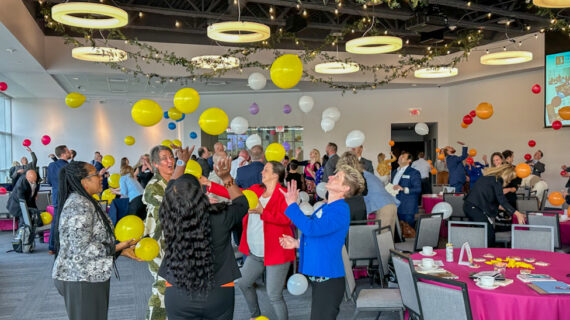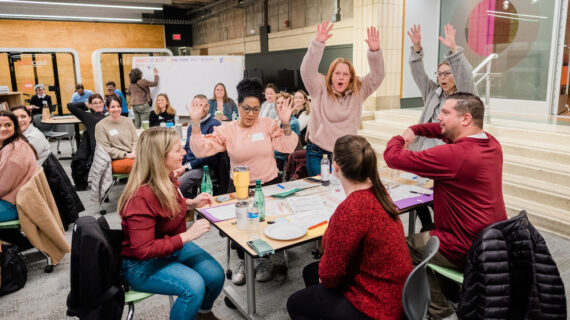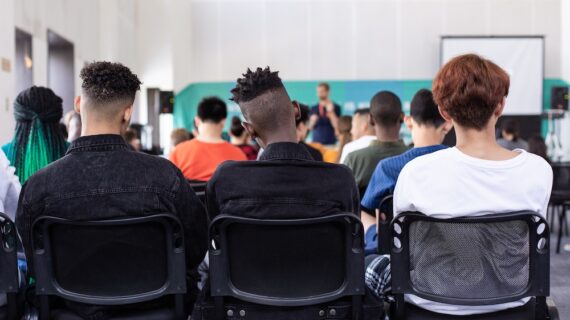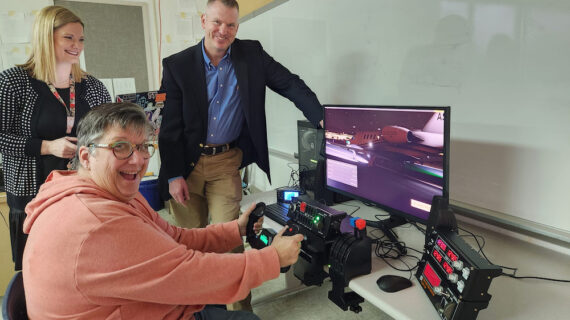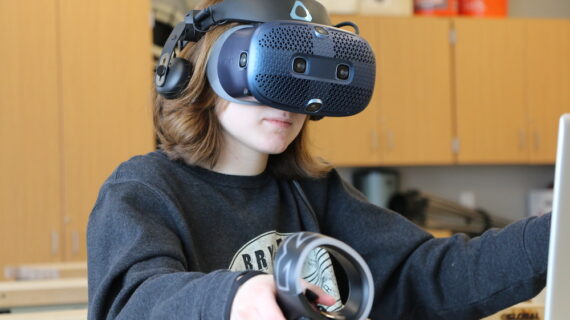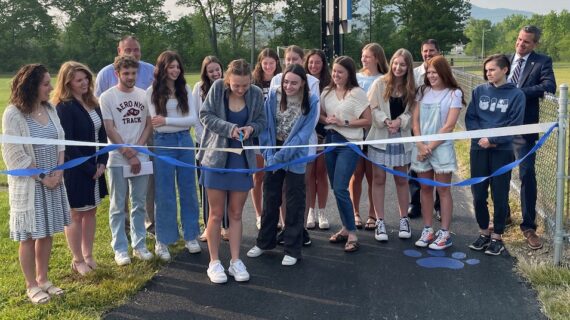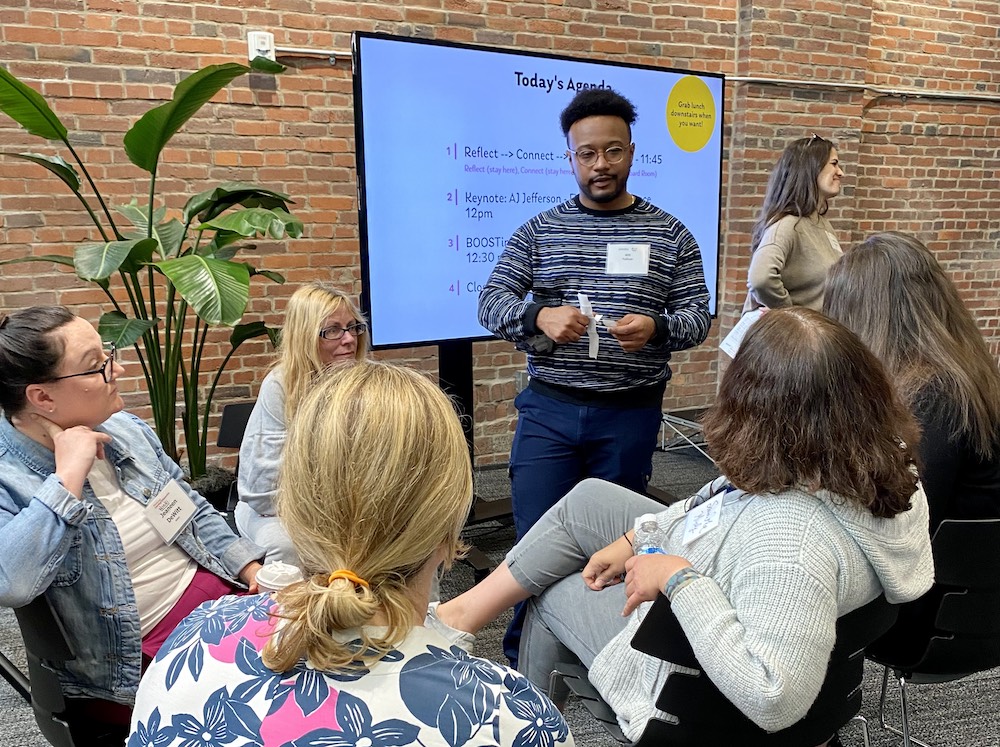
Giving kids a reason to go: The Pittsburgh Learning Collaborative aims to change chronic school absenteeism into ‘presenteeism’
When members of the Pittsburgh Learning Collaborative (PLC) gathered last spring at Hazelwood Green, there was a whole lot of hugging going on. These folks from child-serving nonprofits and schools in our region had begun collaborating at the dawn of the pandemic. They labored together to ensure that families had food and kids kept on learning during the hardest days of lockdown. But for the past three years, they had almost exclusively met over Zoom or by phone.
“It’s been a long journey through the pandemic and a lot of folks haven’t had a chance to meet each other,” says Tiffini Gorman, director of outreach and strategic partnerships at A+ Schools, the organization that leads the PLC.
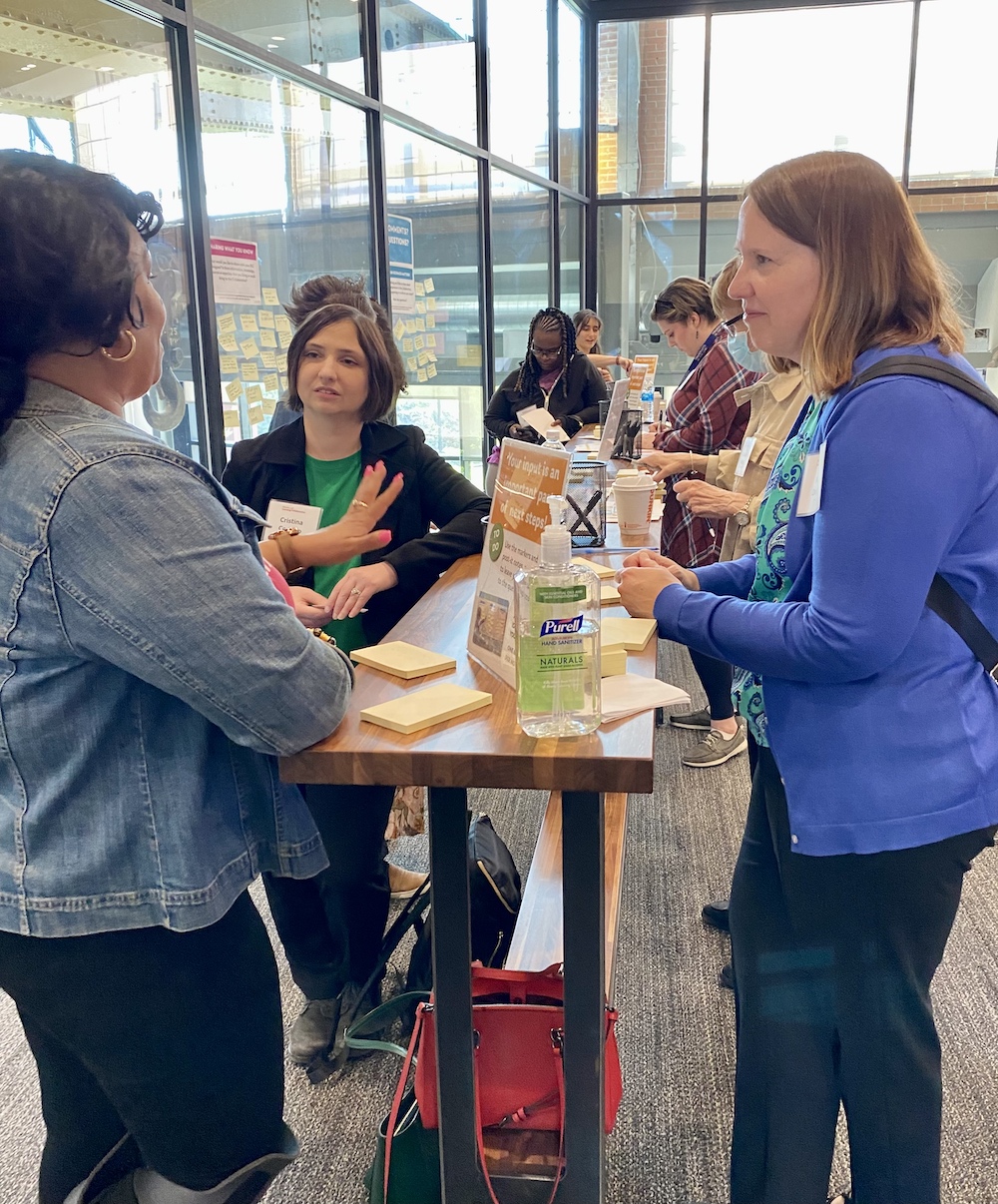
Gorman and her colleagues organized the inaugural Pittsburgh Learning Collaborative Summit last spring as “a chance for us all to get together, be in community and to connect, recharge and reflect on the work that we’ve been doing.” The gathering also gave PLC members a chance to focusing on the challenges that remain, including the crisis of chronic absenteeism.
Kids are considered chronically absent when they’re missing more than 10% of the days in the school year. This was a problem before the pandemic. Numbers of chronically absent kids have risen even higher since then.
The work of PLC members – whether it involves literacy or tutoring support or any other aspect of learning – is all “really connected to this bigger idea of getting kids to school every day,” says A+ Schools executive director James Fogarty.
“The challenges that our children face around learning are real and it will take significant time for our students to be caught up to that lost learning.” Fogarty says. Those who miss a big chunk of the new school year will fall further behind. But those who attend more than 90% of school days — what the PLC calls “chronic presenteeism” — score better on standardized tests, get better grades and have better health.
The PLC’s goal is to unify the child-serving organizations in our region, so they can help one another and avoid duplicating efforts as they all tackle this vital issue.
Gathering at the Summit was a step in that direction. During breakout sessions, participants explored the practical steps that can make it more likely for kids to get to school – things like making sure kids have better access to transportation, making sure food is available for kids at school and making sure under-resourced families have the books and materials they need for learning — and discussed how their organizations are working on these issues.
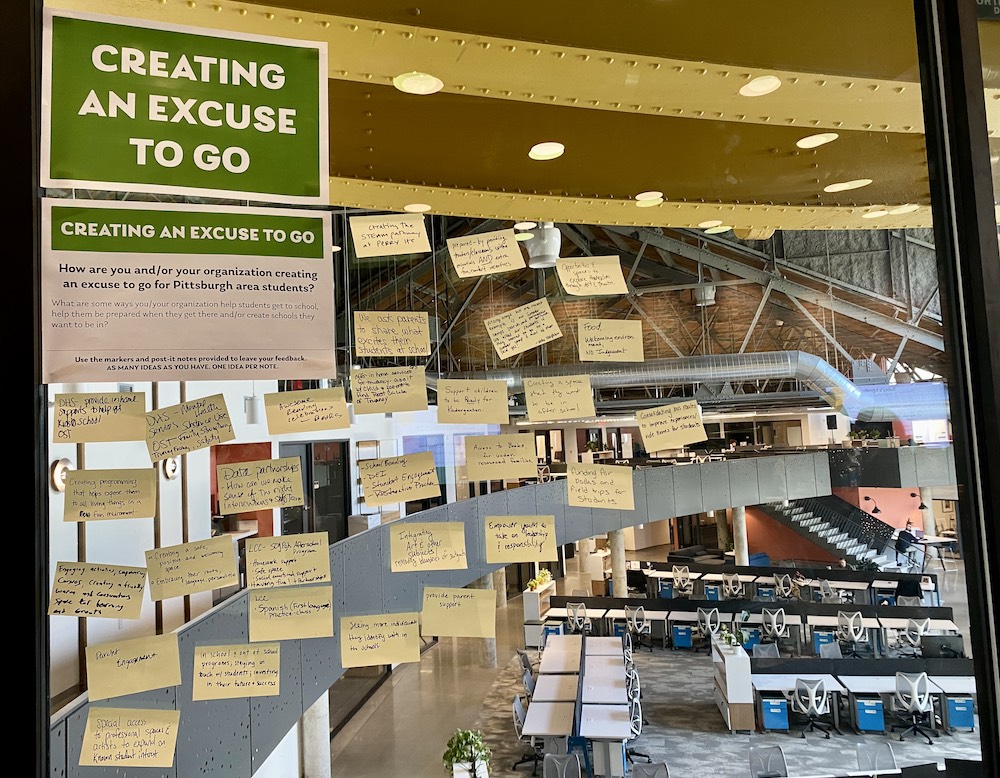
Summit attendees also talked about the intangible things they can address to curb absenteeism, like helping kids and their families with mental health challenges and building relationships with parents. Another key: Give students a reason to be in school and at afterschool care by running programs that kids will be excited about. It’s all about “engaging activities, empowering conversations, and creating a friendly space for learning and growth,” one attendee said.
Though it wasn’t possible to find solutions to these complex problems in a single day, summit attendees said they were glad to be sharing ideas and strategizing in person as they look to the school year ahead. They were also just glad to recharge their personal batteries by spending time together.
“Working with this dynamic group of nonprofits in Pittsburgh has been such a joy just to be able to put my arms around people, say hello and touch base,” Fogarty says. “That is kind of the biggest joy of the day.”
Learn more about the A+ Schools Excuse to Go initiative right here.
